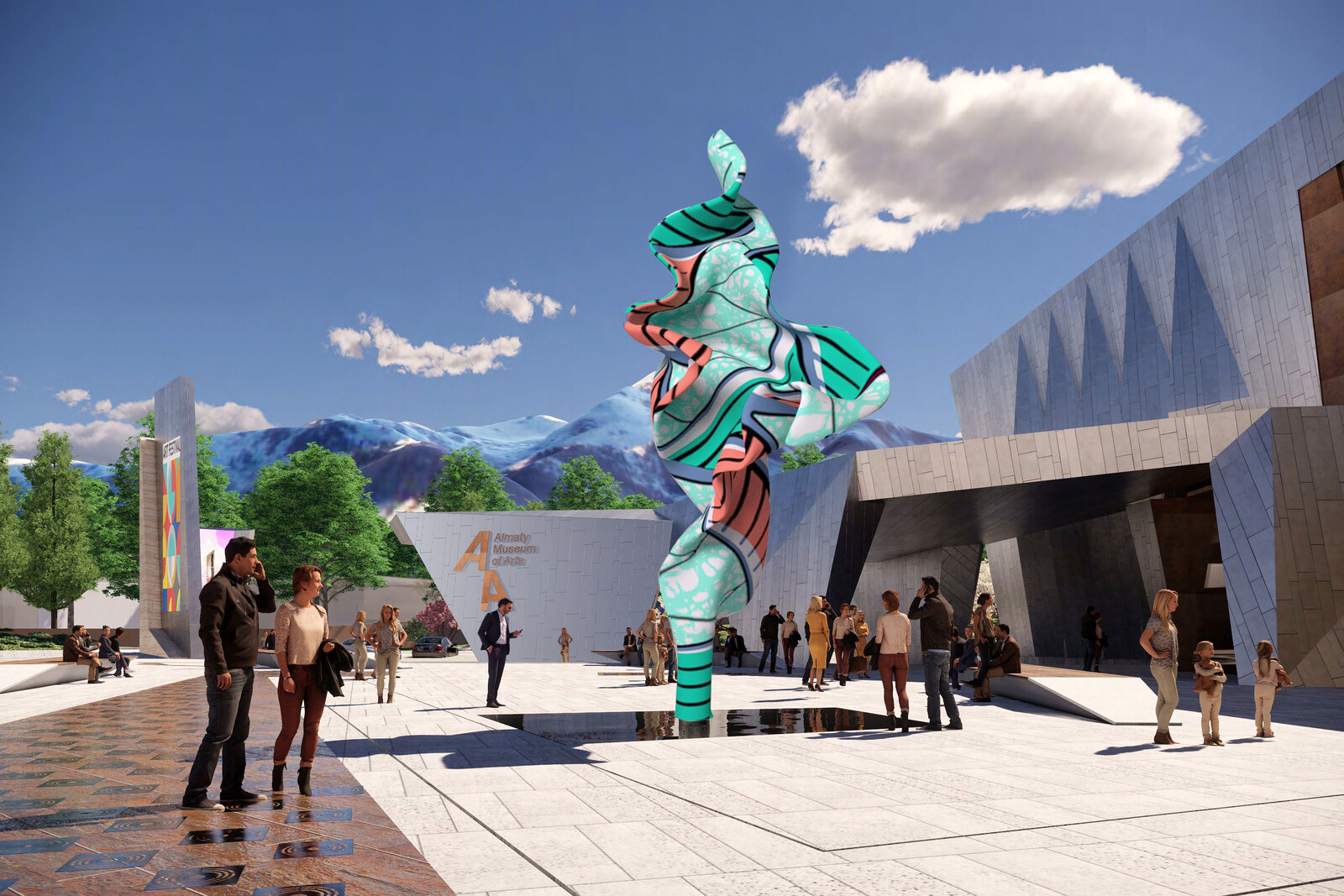A major new private museum and first of its kind in the region
Launching in summer 2025, Almaty Museum of Arts is a new major private museum and the first of its kind in the region, dedicated to the preservation and presentation of local and regional modern and contemporary art.
The museum is founded by collector, philanthropist and businessman Nurlan Smagulov. It will house his collection of over 700 modern and contemporary Kazakh and Central Asian artworks, in addition to seminal modern and contemporary international works. Examples include a monumental ceramic mural by Fernand Léger, a large-scale, walkthrough sculpture by Richard Serra, a multi-channel audiovisual installation by Bill Viola, as well as specially commissioned outdoor sculptures by Alicja Kwade and Yinka Shonibare CBE. The museum and its collection will be gifted by Smagulov to his hometown, the city of Almaty.
Founder Nurlan Smagulov elaborates: “Art has the power to transform lives, and it once transformed mine. For me, the Almaty Museum of Arts is not just a museum; it serves as a bridge that connects Central Asia’s vibrant and diverse art with the global cultural scene. Our mission is to create an inspiring space where both the people of Kazakhstan and international visitors can experience contemporary art that resonates with universal human experiences, while also showcasing the distinctive cultural voices of our region.”
The museum’s architecture and surrounding built environment are designed by the renowned British firm Chapman Taylor, in collaboration with engineering consultants Buro Happold and museum planning experts Lord Cultural Resources. Spanning 9,400 m², the building is inspired by the unique juxtaposition of Almaty’s mountainous landscape and built-up urban environment, symbolised by two ‘L’-shaped structures—one representing the mountains, clad in limestone, and the other, the city, covered in aluminium.
Led by Artistic Director Meruyert Kaliyeva and Chief Curator Inga Lāce, one of the museum’s key endeavours is to support local artistic infrastructures, while creating a platform for discourse between art from Central Asia and the rest of the world. It will open with two exhibitions, the first being a solo show by Kazakh artist Almagul Menlibayeva titled I Understand Everything, curated by renowned Thai curator Gridthiya Gaweewong. The Almaty-born artist’s first-ever retrospective offers an in-depth showcase of her work from the 1980s to the present day ranging from painting and works on paper to lightboxes and immersive video installations. Menlibayeva’s work delves into the overlooked narratives and untold histories of Central Asia, addressing critical themes like the role of women, identity politics, ecology, and neo-colonialism. She intertwines these themes with indigenous cosmologies and mythologies, presenting a layered and nuanced exploration of the region’s evolving identity.
Parallel to that is Qonaqtar, a group exhibition curated by Inga Lāce that draws from the museum’s collection, exploring the connections and tensions between hospitality and migration, with a focus on Kazakhstan, Central Asia and its neighbouring regions.
The opening performance art programme is curated by Anne Davidian, and will feature performance, film, lectures and communal gatherings. It is inspired by Almaty’s rich musical heritage and the museum’s bustling location at the crossroads of Al-Farabi Avenue, which is named after Abu Nasr Al-Farabi (born c. 878), the philosopher and author of The Great Book of Music.
Almaty Museum of Arts will continue expanding its collection by embracing a diverse range of media, genres and perspectives. Research initiatives and dynamic exhibitions, commissions, publications and educational programs will provide a transformative hub for culture in the region.
Artistic Director Meruyert Kaliyeva comments: “We are here to celebrate the voices, visions, and histories of artists from Kazakhstan and beyond, providing a vibrant platform for further study and appreciation of contemporary art in the region. Our aim is to inspire curiosity, dialogue, and a deeper understanding of the artistic heritage and contemporary expressions that shape and reflect Central Asia’s cultural landscape.”
For press requests and further information please contact Alexia Menikou or Zara Doshi at Pelham Communications.



